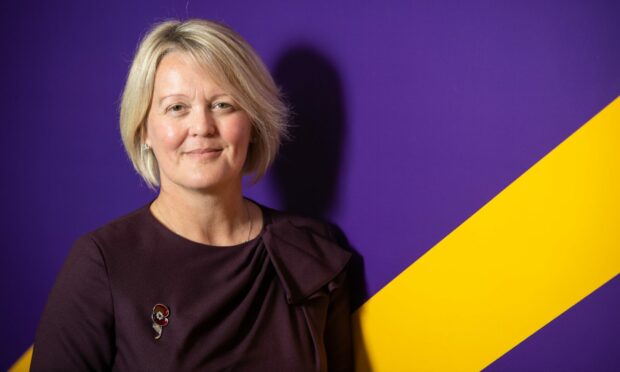NatWest Group chief executive Alison Rose has said tailored post-pandemic support will be “critical” for helping Scotland’s women entrepreneurs “rebuild and thrive”.
She was speaking as the Edinburgh-based banking giant, operating as Royal Bank of Scotland north of the border, launched the roll-out – after a two-year pilot – of its Expert in Residence programme to encourage more women to launch their own business.
The scheme is run in partnership with the Department for Business, Energy and Industrial Strategy. Other partners north of the border include Scottish Edge, the Scottish Chambers of Commerce and Scottish Enterprise.
Tailored support for women with business growth ambitions
It introduces budding women entrepreneurs throughout Britain to experts within their own communities who can help them to achieve their business growth ambitions.
The four staff appointed for Scotland will be available to host events, as well as provide expert insight and advice on business finance. These roles will also deliver support with business lending and banking services, in partnership with specialists from the bank.
It is the latest action taken by the bank following the Rose Review of Female Entrepreneurship, which was launched in 2019 and co-authored by Ms Rose.
One of its key findings was that up to £250 billion of new value – equivalent to one million small and medium-sized enterprises (SMEs) – could be added to the UK economy if women started and scaled new businesses at the same rate as men.
The review proposed eight initiatives to encourage more women-led start-ups. These included providing better access to local, trusted and relatable expertise.
In addition to Experts in Residence, NatWest has women in business specialists operating within its “frontline” teams, all accredited by the Chartered Banker Institute and certified by businesswomen’s support group Everywoman.
These specialists offer bespoke mentoring, networking and professional business advice to women-led and owned SMEs.
Ms Rose, who became the first woman to lead a major UK bank when she took the helm of RBS – since rebranded as NatWest at group level – in 2019, said: “Since the launch of the Rose Review in 2019, strong progress has been made in breaking-down barriers facing female entrepreneurs, with considerable commitment and action across financial services and the wider business landscape.
“Yet there is more to do and, post-pandemic, support which is practical, face-to-face, and tailored to local communities, will be critical in enabling entrepreneurs to rebuild and thrive.
“I encourage businesses to reach out to their local expert in residence… in order to take advantage of what they can offer, alongside the wider package of support available.”
Support which is practical, face-to-face, and tailored to local communities, will be critical in enabling entrepreneurs to rebuild and thrive.”
Alison Rose, chief executive NatWest Group
Small Business Minister Paul Scully said: “Dynamic entrepreneurs need dedicated support that matches their energy and expertise – the Expert in Residence programme provides just that, tailored to women business owners.
Extra funding
Earlier this year RBS announced a doubling of its commitment to helping Scottish women entrepreneurs overcome the business impact of Covid-19.
The extra £100 million funding over four years, open to new and existing customers, and part of a £2 billion commitment by NatWest, was also aimed at reducing a substantial gender gap in entrepreneurship.
Another key finding of the Rose Review was that businesses created by women get less start-up and growth funding than those launched by men.
Ms Rose said this lack of funding was the single biggest issue holding women back at every stage of business development.
Women entrepreneurs and business owners were found to be 17% more likely to struggle balancing business with family life during the pandemic.
And nearly three-quarters (71%) of women entrepreneurs surveyed said they found managing their business stressful during the pandemic, compared with just over half of men (55%).



